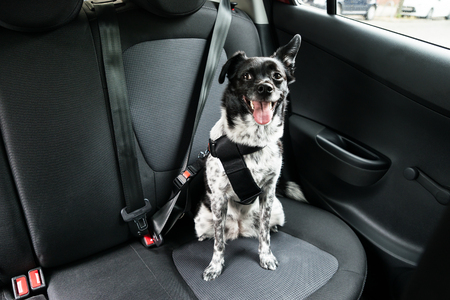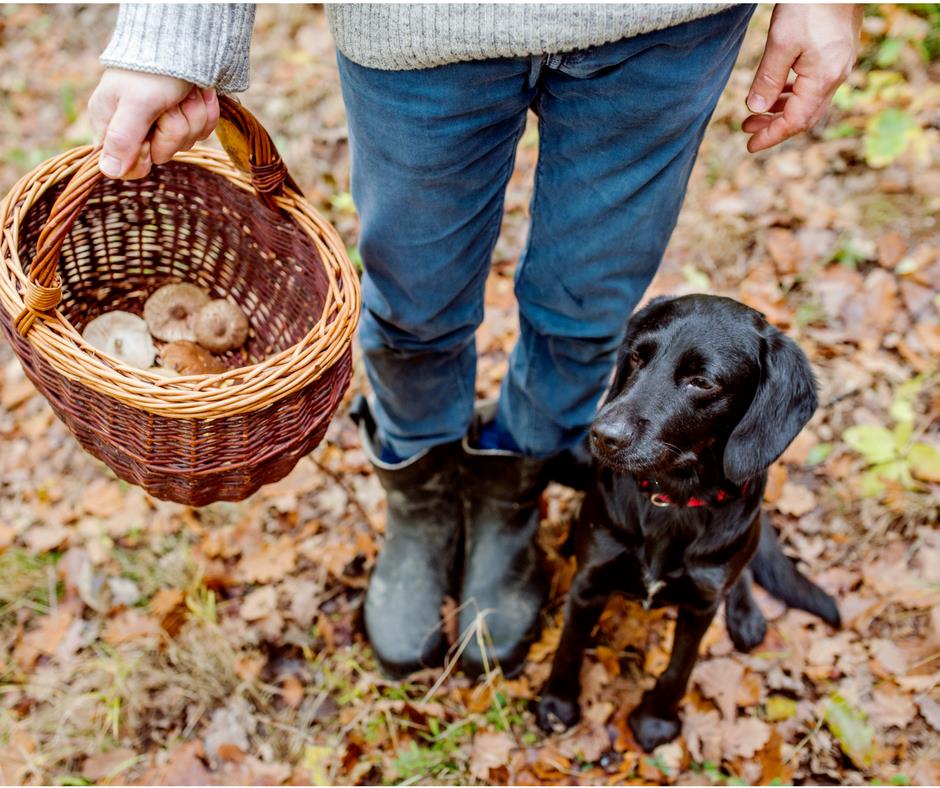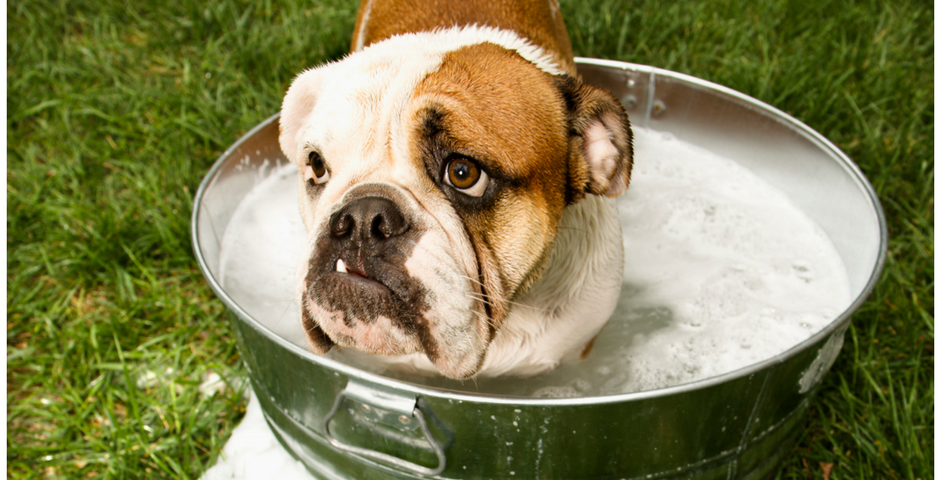
Pet Owner Tips for Holiday Travel
December 1, 2017
Protecting Your Pet From Toxic Mushrooms
January 15, 2018What to Do if Your Pet Gets Sprayed by a Skunk
The Bay Area is an amazing place to live, not just for people but for animals too. One animal that you are sure to smell, if not see at some point is the skunk. Unfortunately, that means your pet is likely to encounter, and get sprayed by, a skunk. These critters are common all over North America and have adapted to living near people. Skunks can make their homes just about anywhere there is a reliable food and water supply. Under a patio or dense hedge (where they can burrow) are just a couple of places skunks can use man-made environments to create a home.
Because skunks do not mind living in such close proximity to people, it makes the chances of running into one with your dog or cat much more likely, particularly during skunk breeding season months of January and February. In most circumstances you are likely to meet a wild skunk and not a tame “pet”. Aside from their distinct odor that can be left behind skunks can carry and transmit the rabies virus. So would you know what to do if your pet comes nose to nose with a skunk?
What to do about the smell, after your pet is sprayed by a skunk
Skunks have scent glands that can release an oily material up to 10 feet away! This oil based substance has a unique smell that skunks use to deter predators away from a distance. Unfortunately for your curious pet, this means potentially being sprayed with this malodorous perfume! The oily spray sticks to the fur and skin of your pet leaving the distinct odor to last for potentially weeks.
What can you do if your pet is sprayed by a skunk? First and foremost, make sure none of the skunk’s spray has entered your pet’s eyes. The spray can cause serious pain and injury to the eyes. If you suspect that your pet did get sprayed directly into his eyes, call us immediately to have your pet seen. Waiting even 24 hours without veterinary care could cause serious damage to your pet’s vision.
If your pet just received a stinky spray, you are now set with the task of dealing with the odor. There are many “recipes” for baths to give your pet to remove the smell of being sprayed by a skunk. Solutions from tomato juice baths, vinegar baths, and even peroxide based baths can be found online using your internet search engine. You can also find products online designed to help with the odor left behind. Most of these solutions help decrease the smell, but do not truly eliminate the odor. (For a recipe on homemade skunk solution check the bottom of the page).
Some people think shaving their pet’s fur will remove the smell as well, unfortunately this may help but will not totally eliminate the odor depending on what parts of the body your pet has been sprayed. The bottom line is that even with a good bath, the odor may persist for some time. Your best option is to try a highly recommended option for bathing your pet after being skunked, give the odor a good amount of time to go away, and avoid getting your pet wet again after being bathed (getting wet again can cause the smell to come back).
Injuries and wounds caused by a skunk
Unfortunately, close encounters with skunks may leave more than just a smelly reminder. If cornered or surprised a skunk can use its claws and teeth to defend itself. Give your pet a close look after an encounter with a skunk. The bites and scratches may require medical care and antibiotics.
This is also an important reason why you should keep all your pets up to date on their rabies vaccine. Skunks are carriers of the virus and can transmit it to people or pets through a bite. If you know that your pet has had an altercation with a skunk that has left physical wounds but can’t tell if it’s a bite or a scratch, call is immediately to set up an appointment with a veterinarian. The doctor will evaluate the wounds and discuss care options. Contra Costa County Animal Services will also be called and will give advice on how to proceed after a wound is inflicted by a skunk. (Even if your pet is current up to date on his rabies vaccine, the county may require your pet to receive a booster vaccine early and/or be quarantined at home for a short period).
Helping your pet avoid skunks
Aside from training our pets to run away from a skunk, there are very few things you can do to keep your pet separated from skunks. Here are a few recommendations we can give to save your nose from skunk exposure.
- Skunks are nocturnal, so if possible do not allow your pet to be off leash or unsupervised at dusk, nighttime and in the early morning hours.
- Keep your pet in areas where you know there is limited skunk activity.
- Make your home less skunk friendly. If you have porches or sheds, consider installing mesh to keep skunks from making their burrows under them. Seal garbage cans or move them indoors. Consider installing motion detection lights (skunks prefer the dark).
Homemade solution to bathe your pet after he is sprayed by a skunk
- One quart of 3% hydrogen peroxide
- ¼ cup of baking soda
- 1 to 2 teaspoons of liquid dishwashing soap
Mix all the ingredients together and use the resulting solution to lather your pet’s fur. Allow to sit for 5 minutes. Repeat if necessary. **Avoid contact with eyes and prevent swallowing. This solution needs to be prepared immediately before use. Do not store or save any excess solution. The solution may bleach fabrics. It is also potentially flammable so keep away from candles, open flame, and smoking.

